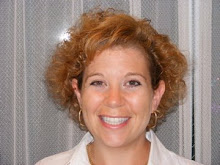
Fahrat took my hand coolly when we met and gave me her mysterious smile. She adjusted her yellow head scarf after we shook hands as she was saying it was a pleasure to meet me. She wore a tunic of blue over plain pants that might pass as blue-jeans. Whatever was hiding under the tunic and headscarf, however, was no match for the brilliance of her smile, which belied her age, making her look as young and guileless as a child. In general, she had quiet demeanor, except when talking about her schooling and journey through and beyond secondary education, when she became positively chatty. Her parents wanted better for her, she explained. She is interested in art and history, but is passionate about her required community service project where she teaches young children in the slums of Chitagong. She currently attends Asian University for Women (AUW) located in her home country of Bangladesh, but which caters to underprivileged women from across South and East Asia, women who otherwise would not get post-secondary education.
Fahrat’s fellow AUW student, and fellow Bangladeshi, Pearly, had a wide mouth and dark, glossy hair, which she kept uncovered. Her eyes were frank and curious. Young, only nineteen, and interested in fashion and art, she captivated the young girls she met, who saw her as exotic. She had a harder time convincing her parents to allow her to go to an
These two young women were in
And that’s the connection to Fahrat and Pearly. They noted in their speeches last evening, that when you educate a man, you educate a man, but when you educate a woman, you educate a family and a village. These women, even if they don’t go directly back to their home villages, will go out in the world and find a way to give back to their communities. They will have the skills to do things like build a medical clinic, or have an AIDS prevention program. They will be able to direct funds to invest in their country. Both girls note that while some girls want to go directly back to their homes to either teach children or make a direct connection to the communities in which they grew up, all of the girls to a man want to somehow stay connected to their homes and improve the experiences of those younger than they.
This morning, the morning after the big night, my seven-year-old daughter Sydney came into my bathroom as I was getting ready for the day. She watched me carefully apply some mascara and I spritzed her with my perfume when I spritzed myself. Then I knelt down in front of her. I told her about meeting Fahrat and Pearly. I told her that she is lucky and that she has the power to make a difference in the world. Girls’ education is of critical importance in the developing world, but it is also incumbent upon women in my position to make our daughters feel empowered, like they can make a difference in the lives of others. Beyond the financial, my children are born of privilege because they have access to some of the best educational systems in the world. It is not something, I told my young daughter, that she should take for granted. Some girls don’t have what she has.
Thank you, Fahrat and Pearly. You have been inspirational to me and my family.

No comments:
Post a Comment